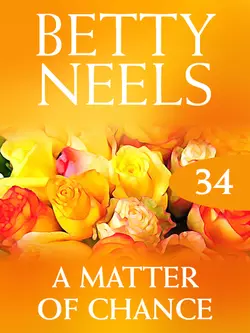A Matter of Chance

Бетти Нилс
Тип: электронная книга
Жанр: Современная зарубежная литература
Язык: на английском языке
Стоимость: 536.55 ₽
Статус: В продаже
Издательство: HarperCollins
Дата публикации: 16.04.2024
Отзывы: Пока нет Добавить отзыв
О книге: Mills & Boon presents the complete Betty Neels collection. Timeless tales of heart-warming romance by one of the world’s best-loved romance authors.Was she in the right place – at the wrong time…? Cressida had lost her parents, and badly needed a new focus. It seemed ideal, going to Holland to help an elderly Dutch doctor with a book he was writing, giving up her own nursing job for a while. Her new employer had two partners: one was elderly and friendly like himself; the other was younger, and…not quite so friendly!Giles van der Tiele always seemed to be snubbing Cressida, putting her in her place; yet he could be extremely charming when he liked – too much so for her peace of mind! But she knew she was no competition for the sophisticated widow Monique de Vries, who clearly found Giles charming, too…